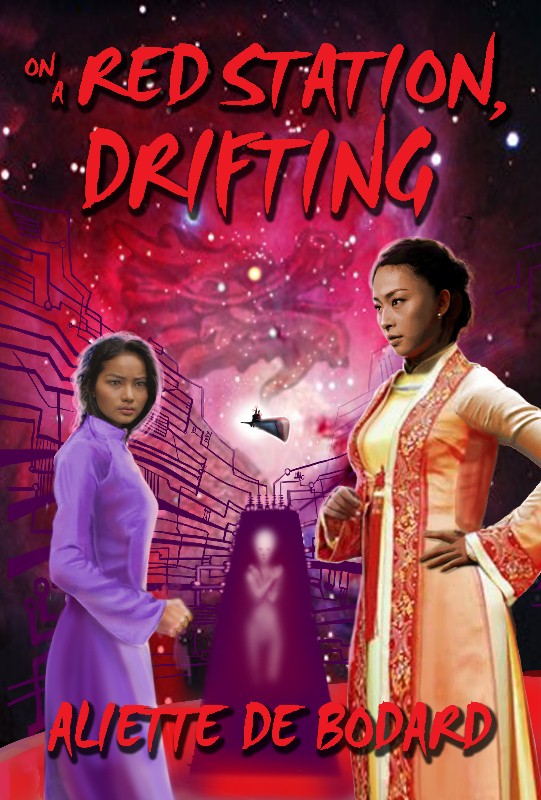This one started with poets: to be more specific, Aimé Césaire and Qiu Jin. You might have heard about both or either, but if you haven’t: Aimé Césaire was a Martiniquais, and is famous for a lot of things–but the one that got my attention was his poetry. He wrote in French, having received a classical French education; but his poems concern themselves with cultural identity, and in particular the cultural identity of Black people in French territories (at the time he, Senghor and Damas founded the négritude movement, Africa was still crisscrossed with French colonies).
He was both an activist and a poet; the same can be said of Qiu Jin, aka the Woman Knight of Mirror Lake, a Qing dynasty revolutionary, who fought against the misogynist authorities, and sought to free women from the tyranny of their husbands and fathers (and from the custom of bound feet in particular). Qiu Jin had received a classical education, and wrote impassioned and beautiful poetry about her role in a revolution–and was ultimately executed after a failed uprising.
The whole Qiu Jin angle tied in with some thinking I’ve been having about revolutions and wars of liberation; and about messy transfers of power. Mainly, that revolutions always have a losing side, and that they create exiles–the Russian émigrés to France and Britain in the beginning of the 20th Century, the Iranian diaspora from 1979, who got hounded out of the country for being loyal to the Shah; the loyalists to Chiang Kai-shek, who had to forcibly relocate to Taiwan… And that revolutions might indeed be liberating for a country as a whole, but that beneath you’ll find power struggles, and that one social strata or one region will often come to dominate everyone else. Finally, the fact that social dominance often translates into language power-plays: for instance, the “standard” dialect of Vietnam is now Northern Vietnamese (because the Communist Party rules from the North); the “standard” language of France was imposed over all local dialects aka patois in the 19th Century (see here for an account of how non-French dialects gradually lost the struggle). I’m not saying it’s necessarily and completely a bad thing to have one dialect become dominant: if we had kept all the patois in French, we still wouldn’t be able to understand one another and wouldn’t have a sense of national identity; but there is still a tremendous loss in languages that can happen when a country unifies itself and becomes a whole.
Somehow, all of this merged together into a story of colonial empires and uprisings and poetry. Yup. Go figure.
I wanted one of the strands of the story to be poems: the idea was that Anshi’s life would be seen through her writings; and what better writings for a scholar than poems? Most scholars in Vietnam or China composed poetry; and the ability to do so was widely praised; in a quasi-Asian future, it made sense that poetry would still be very important. Qiu Jin’s poems provided much of the verse that I put in the story: see the first three poems of this post, and you’ll notice many familiarities… Another poem I used for inspiration was Bei Dao’s “The Answer”, which you can read here, probably his most famous one, as it was written during the 1976 Tiananmen demonstrations, and was taken up as an unofficial anthem in the 1989 ones.
For the very last poem, though, I wanted something a little mellower, about separation–it’s an easy theme to find in classical Chinese poetry (much of which was written between friends who had known each other in the capital and been posted to opposite ends of the country), so I turned to the Tang poets. Not remembering my sources quite so well; but I went for an amalgam of poetry about loss and nostalgia, which also–quite naturally–gave me my title. For once, I didn’t have to struggle to find one 🙂
